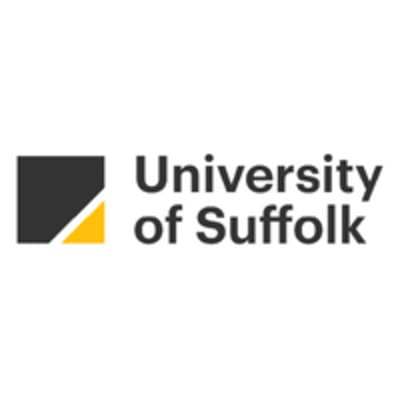
MA in Childhood Studies
University of Suffolk

Key Information
Campus location
Ipswich, United Kingdom
Languages
English
Study format
On-Campus
Duration
1 - 3 year
Pace
Full time, Part time
Tuition fees
GBP 8,235 / per year *
Application deadline
Request info
Earliest start date
Request info
* per year full-time; £915 per 20 credits - part-time tuition fee; £12,150 - international tuition fee per year
Scholarships
Explore scholarship opportunities to help fund your studies
Introduction
MA Childhood Studies is a taught Masters programme which takes an informed and critical approach to the academic study of childhood studies. This programme would be of interest to undergraduates looking to progress to the postgraduate level and professionals interested in specialised or advanced study of childhood.
The MA Childhood Studies is an interdisciplinary course with a strong emphasis in the social sciences, including perspectives drawn from sociology, social policy, anthropology, geography and history. The course is informed by the United National Rights of the Child (UNCRC) framework and is committed to a child-centred philosophy. Modules will reflect on the principles of protecting the rights and interests of children and young people, and the increasing importance of their participation in these discussions. This curriculum is continually updated and developed to reflect the changing landscape of childhood studies.
Enhance your Employability
The curriculum encourages students to develop their own interests and professional practice through the dynamic study of childhood. This postgraduate programme supplements a BA (Hons) degree and provides an advanced understanding of current, sometimes controversial, topics facing children, such as media, sexualities, embodiment, death and politics. In the current move towards evidence-based practices, the research skills gained through this degree will help to enhance your career prospects and give you the leading edge on current practice.
Whether you want to develop niche expertise or refine analytical or research skills, this course will give you the ability to demonstrate self-direction, autonomy, and it will provide up-to-date, in-depth knowledge of social policies affecting children and families.
Teaching, Learning and Assessment
This degree uses a flexible, blended approach, so face-to-face lectures, seminars, and tutorial support are complemented by online resources, interactive learning tools, and self-study materials. All modules are designed to offer students a shared learning experience with other students and module tutors while remaining flexible to demands of everyday life. Additionally, the course team incorporate a wide variety of assessment strategies, which may include formats such as essays and reports, critical reviews and commentaries, informed discussion and debate, analytical exercises, individual or group presentations, and project-based or work-experience reflections. In the final stages of your degree, you also have the opportunity to conduct a small-scale research project with the support and guidance of experienced supervisors who are experts in their field. All taught sessions to take place at our main campus in Ipswich and online materials are made available through the online learning environment, Brightspace.
Course Aims
- To offer an innovative, dynamic and flexible programme that critically considers developments in the academic study of childhood and the changing contexts of childhood in a globalised world.
- To critically explore the cultural and social constructions of childhood and the implications that they have had and continue to have on children's everyday lives.
- To advance students knowledge of the complexity of understanding the relationship between children's rights, the ideologies and responsibilities for welfare and the lived realities of children's diverse experiences.
- To provide a robust theoretical framework for students to develop an integrated and critically aware understanding of childhood studies and to cultivate a critical and analytical approach to contemporary methodological advances in childhood research.
- To develop in students a range of intellectual skills reflecting both the ethos of lifelong learning and the rigour required at Masters level, a high level of student autonomy and self-direction in order to facilitate the student to demonstrate initiative, originality alongside integrity and ethical judgement in their advanced scholarship and to become influential and effective specialists in the field of childhood studies.